Annette Casey visits an Oxfordshire school where chickens have a key role
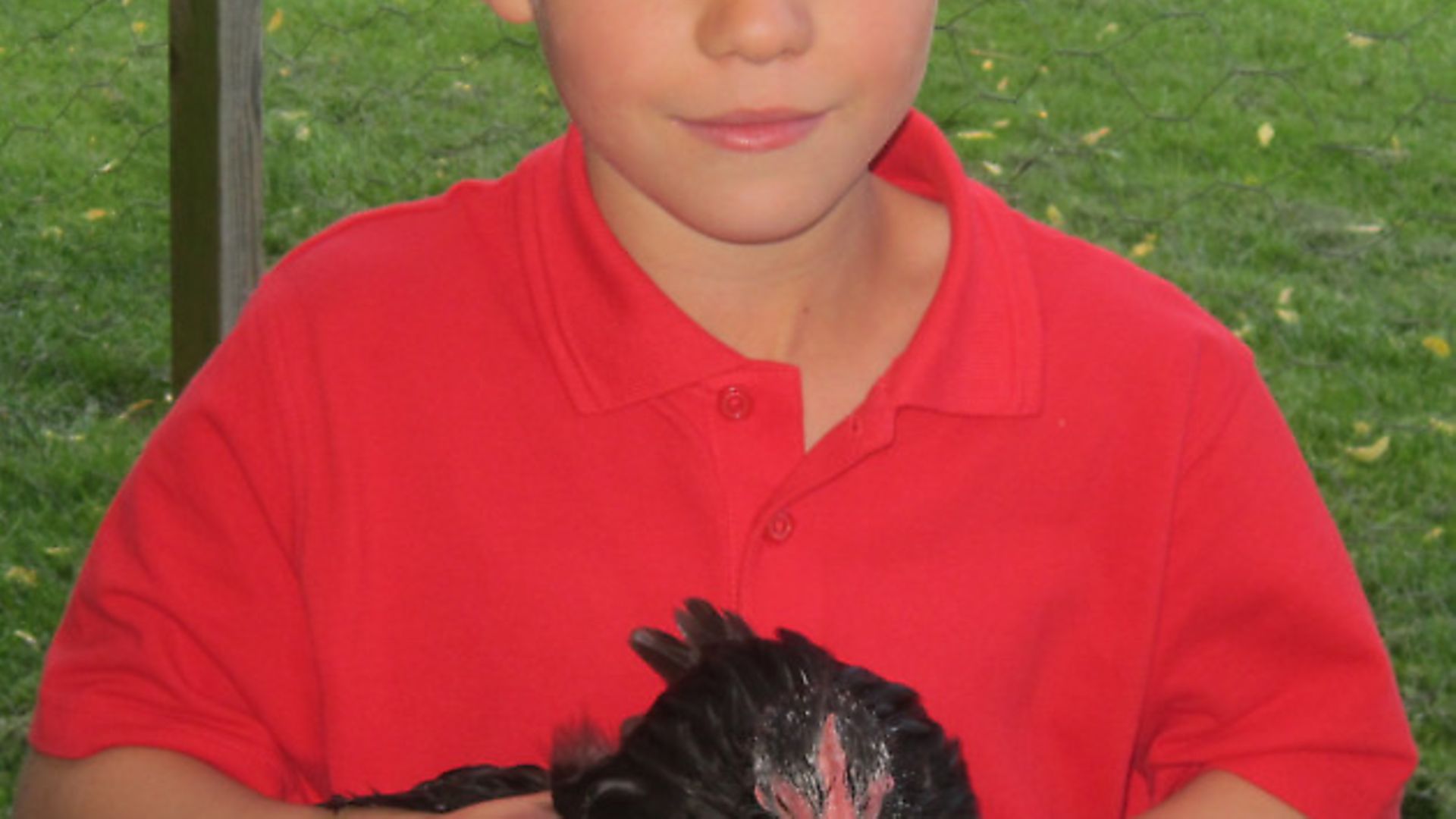
There are some VIPs at Stanford-in-the-Vale Primary School in Oxfordshire – very important poultry!
The whole school community likes to be involved with the chickens, and pupils have been entranced watching chicks hatching out.
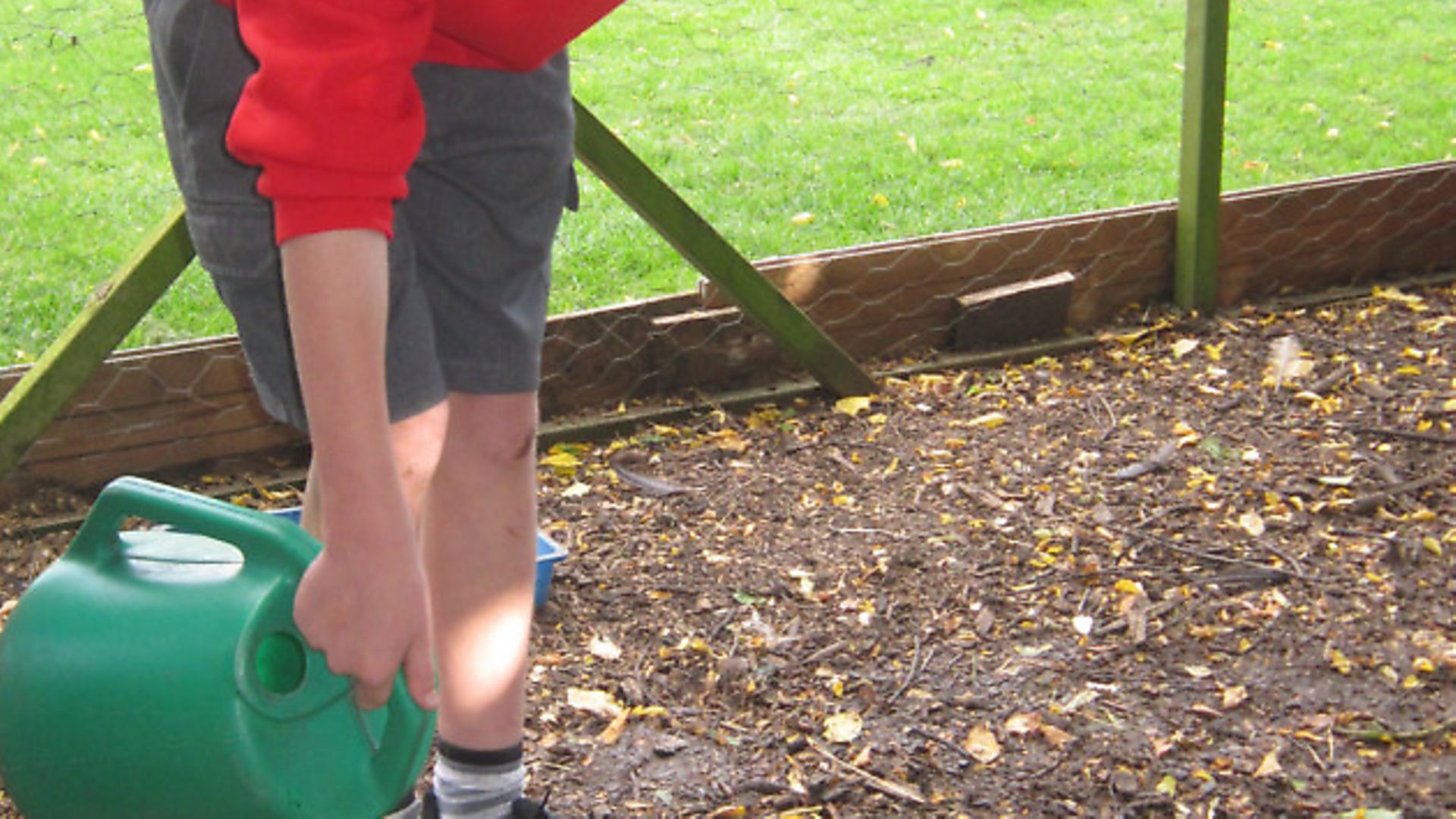
The four original VIPs who live there are Pekins in mixed varieties of colour. Hazel and Tangerine have names that suit their golden feathers, appropriately-named Misty has light grey plumage and Chocolate – a dark chocolate – is black. The school has an Eco Club, and members were given the task of naming the birds.
Headteacher Amanda Willis runs this after-school club, and it was she who introduced the hens three years ago. The numbers have fluctuated slightly, and have recently increased with six new arrivals. These are black Pekin bantams, donated by a local family who were moving house and could no longer keep them.
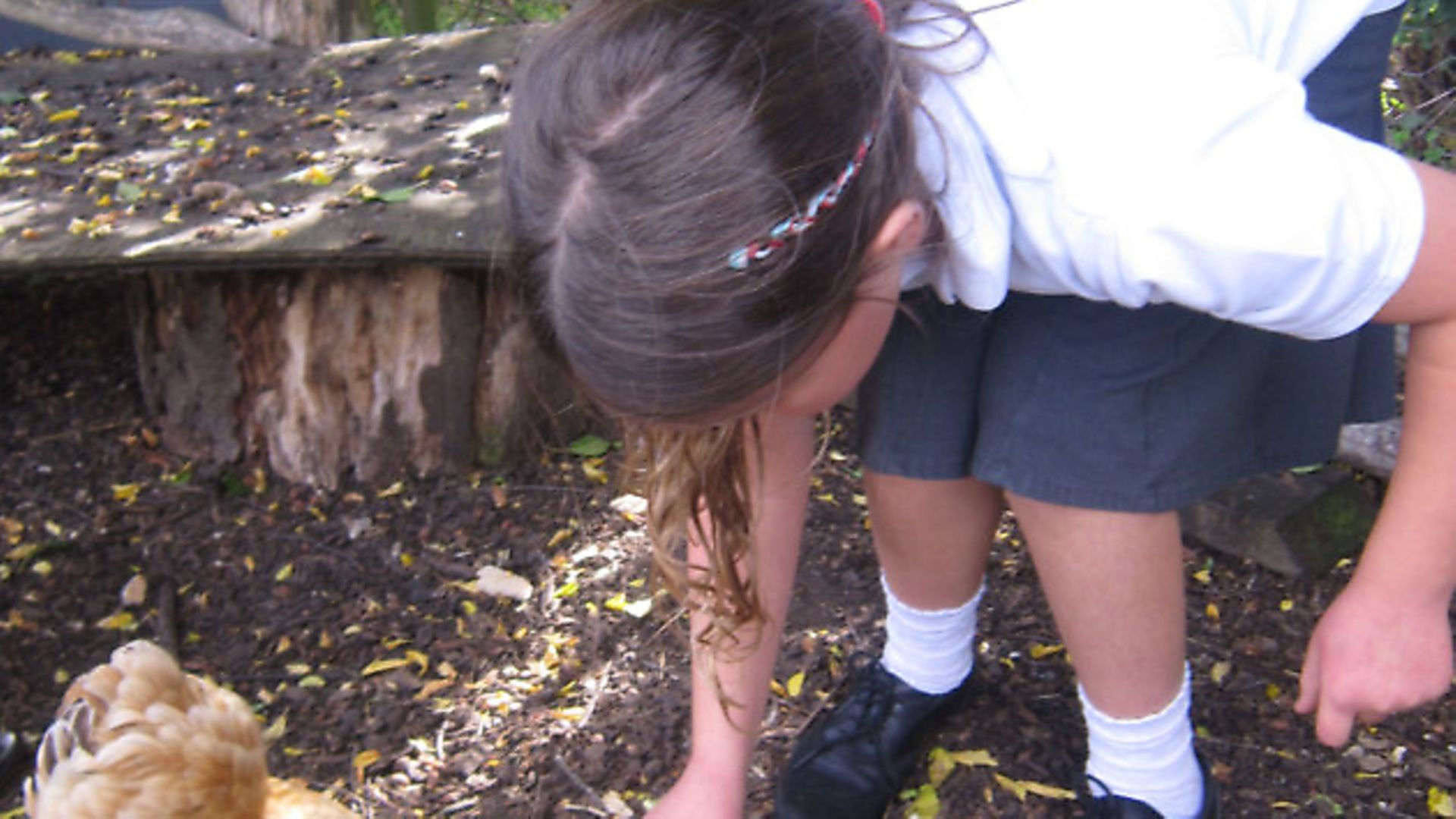
The hens have all come to a school with very good environmentally-friendly credentials – a certificate displayed in the foyer records that in 2013 it received an International Eco Schools Award.
There is even an Eco Club, and members play their part in cleaning out the coop, collecting the eggs and keeping an eye on the birds’ welfare. At break and lunchtimes, when the children come out on to the field to play, all of them can enjoy watching the hens have a break of their own.
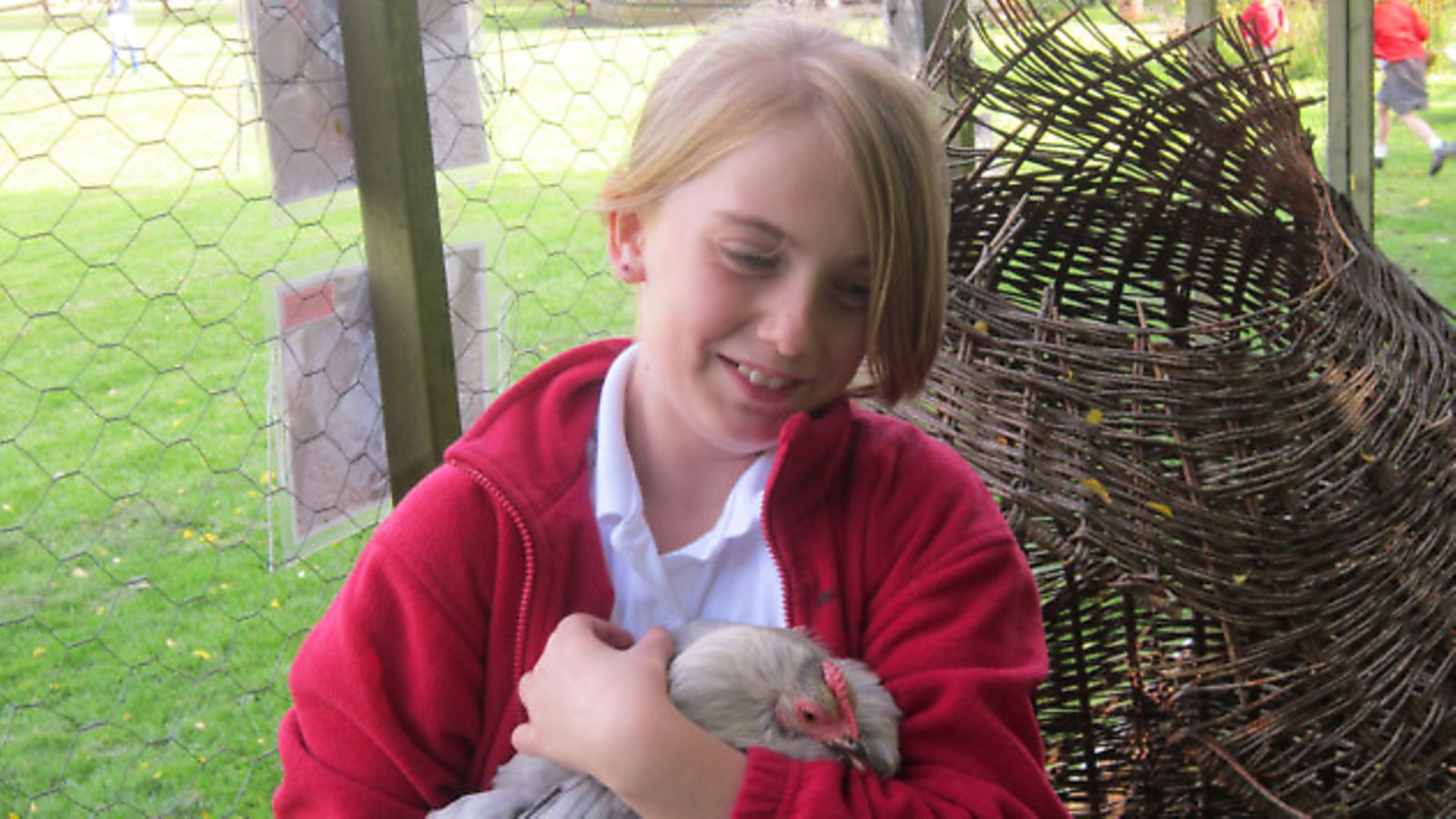
“They are allowed out to eat the grass, and scratch around in the hedge,” Millie Smith of Year 5 explained. “We spread out to keep an eye on them so that they do not wander too far away.
When it is time for the bell to go we put them by the door of their pen and they go back in by themselves.
“The children are allowed to pick them up, but we don’t allow the youngest year groups to do this because they might hold them too tightly.”
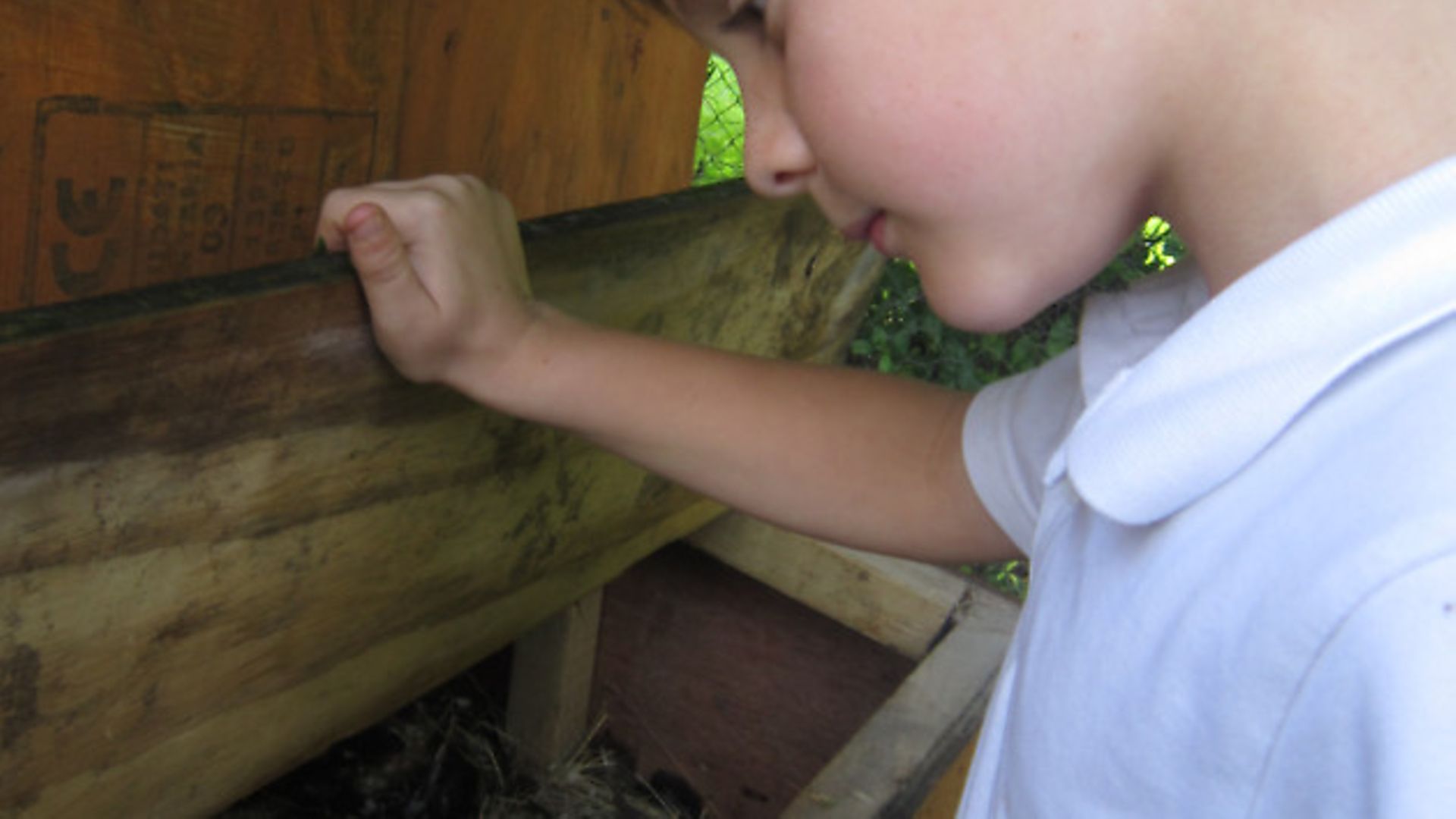
The school holds occasional Ground-force Days at weekends – when parents and friends turn out in force to spruce up any of the outdoor spaces that need attention.
It was during one of these days that a team of three built the house for the chickens and set up the netting fencing to make their run. This brought three generations into the poultry project: Owen Hill, a member of the Eco Club, his father Andy Hill, who is also the school’s caretaker, Millie’s father Karl Smith, and Owen’s grandfather Graham Cooper. Members of the Eco Club added a play area.
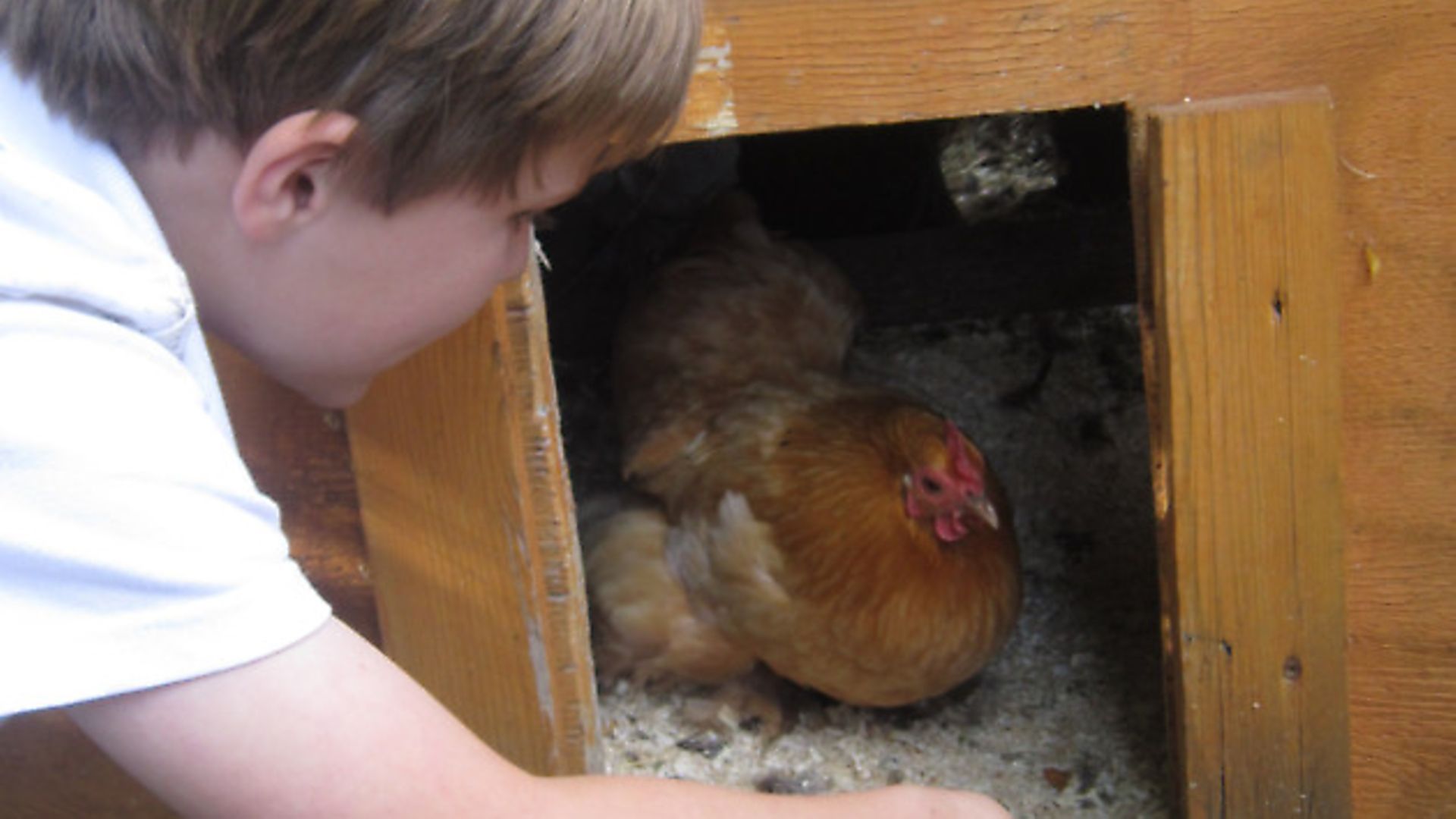
The house has sawdust bedding, and there are bark chippings in the run. “We used the bark from a tree here that had had to be cut down,” said Amanda – further environmental credit for the club.
One of the newest Eco Club recruits, Solomon Taylor, now in Year Three, is now old enough to join and is enjoying getting to know the birds. m”We give them food and water every day,” he says. He was soon able to learn how friendly they are, Misty having allowed him to pick her up and hold her.
Jack Checketts is also in Year Three. “I take a turn in cleaning out the hutch,” he says.
During the months when darkness comes early, the children can close up the hens for the night before they go home. For the rest of the year, various parents and children do this and make sure that they are safe and sound. The main diet is mixed corn, sometimes with a special supplement at midday, and the school cooks are keen on using the eggs.
There is a careful routine to keep the birds cared for at weekends and during holidays. “I send home a slip and families sign up to be responsible for individual dates,” said Amanda. “The duty teams feed and water the hens and collect any eggs, which they can take home.”
Owen Hill is always pleased when it is his family’s turn. “My mother bakes extra-specially great cakes when she is using school eggs to make them,” he says.
People in all areas of the school community contribute to the poultry-keeping routines, including parent and teaching-assistant Teresa Scrase and parent Steve Summers who are both very much involved. Parent and school helper Sarah Woodyer-Ward also helps out, and sourced the Pekins.
In another project, younger pupils had an incubator in their classroom where they could watch the stages of the chicks hatching out. “We had a manual incubator so that the children had to turn the eggs daily – just as a broody hen would – and add water to keep them moist,” said Amanda.
“The children were able to watch the chicks as they grew and flourished, until eventually they were returned to the nursery garden that had supplied the eggs.”
Image(s) provided by:
Archant
Archant
Archant
Archant
Archant
Archant







